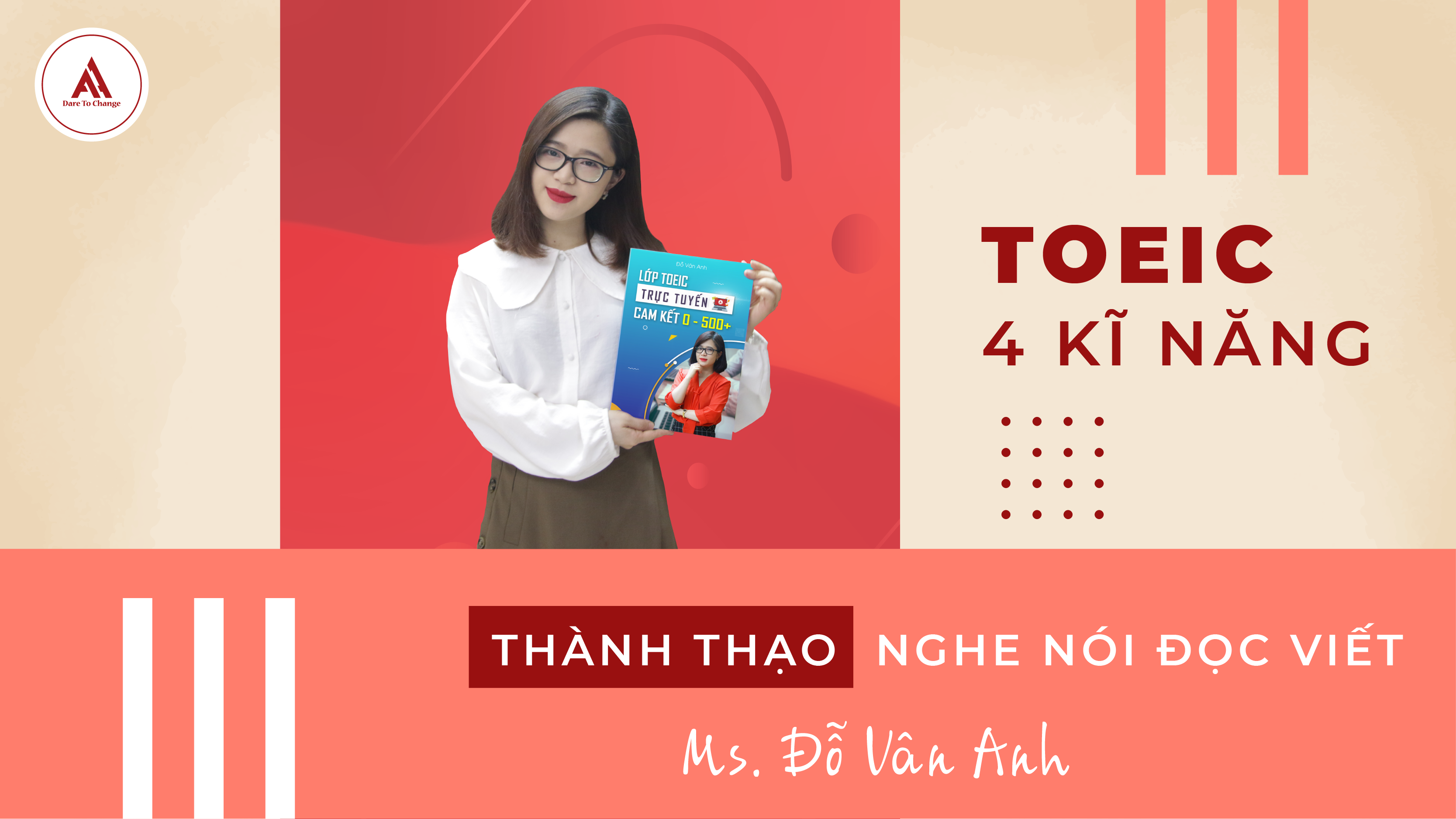[UPDATE] Tất tần tật cấu trúc be used to: Công thức & bài tập
Trong Tiếng Anh, cấu trúc "be used to" được cá nhân sử dụng để diễn đạt cho việc quen thuộc với một tình huống, hoạt động hay trạng thái nào đó từ trước. Tìm hiểu tất tần tật toàn bộ công thức, bài tập cấu trúc be used to trong bài viết dưới đây.
Cấu trúc be used to là gì?
Cấu trúc "be used to" trong tiếng Anh được sử dụng để chỉ sự quen thuộc hoặc thích nghi với một hoàn cảnh, hoạt động hoặc thói quen nào đó.
Khi người học muốn biểu đạt rằng một điều gì đó không còn làm họ cảm thấy lạ lẫm hoặc khó khăn nữa do đã trải qua hoặc tiếp xúc với nó trong một thời gian dài, "be used to" chính là cấu trúc phù hợp để diễn đạt ý đó.
Công thức be used to. Be used to + gì?
Công thức của "be used to" có thể được diễn đạt như sau:
| Công thức | Ví dụ | |
| Khẳng định | S + be (is, are,…) + used to + V-ing/Noun. | I am used to getting up early. (Tôi đã quen với việc thức dậy sớm.) She is used to the cold weather. (Cô ấy đã quen với thời tiết lạnh.) |
| Phủ định | S + be (is, are,…) + not + used to + V-ing/Noun. | He is not used to working late. (Anh ấy không quen với việc làm việc muộn.) They are not used to the noise. (Họ không quen với tiếng ồn.) |
| Nghi vấn | Be (is, are,…) + S + used to + V-ing/Noun? | Are you used to traveling alone? (Bạn đã quen với việc đi du lịch một mình chưa?) Is she used to the new environment? (Cô ấy đã quen với môi trường mới chưa?) |

Cấu trúc Be used to
Lưu ý khi sử dụng cấu trúc be used to
- Tránh nhầm lẫn với "used to" và "get used to": "Be used to" và "used to" thường gây nhầm lẫn. "Used to" dùng để chỉ thói quen trong quá khứ không còn tiếp diễn. Trong khi "get used to" nhấn mạnh quá trình thích nghi hoặc trở nên quen thuộc với điều gì đó mới mẻ hoặc không quen thuộc.
- Sau be used to không dùng động từ nguyên mẫu (V1): một lỗi phổ biến mà nhiều người mắc phải là theo thói quen sử dụng "to" đi kèm với dạng nguyên thể của động từ (V1), giống như trong cấu trúc chỉ mục đích như "aims to V1", “to V1”, “in order to V1)
Mở rộng một số cấu trúc khác với used: used to và get used to
- Used to: Cấu trúc này chỉ thói quen hoặc trạng thái trong quá khứ mà không còn nữa ở hiện tại. Ví dụ: "I used to drink coffee every morning, but now I prefer tea." (Tôi đã từng uống cà phê mỗi sáng, nhưng bây giờ tôi thích trà hơn.)
| Công thức | Ví dụ | |
| Khẳng định | S + get + used to + V-ing/Noun | I got used to driving on the left. |
| Phủ định | S + do not (don't) + get + used to + V-ing/Noun | He doesn't get used to waking up early. |
| Nghi vấn | Do/Does + S + get + used to + V-ing/Noun? | Do you get used to working at night? |
- Get used to: Đây là quá trình trở nên quen với một điều gì đó mới mẻ hoặc khác biệt so với trước. Cấu trúc này nhấn mạnh sự thích nghi dần dần.
Ví dụ: "It took me a while to get used to driving on the right." (Tôi đã mất một thời gian để quen với việc lái xe bên phải.)
| Thể | Công thức | Ví dụ |
| Khẳng định | S + used to + V1 | I used to play football. |
| Phủ định | S + did not (didn't) + use to + V1 | They didn't use to travel much. |
| Nghi vấn | Did + S + use to + V1? | Did she use to study French? |

Tổng hợp mở rộng cấu trúc khác be used to
Bài tập vận dụng cấu trúc be used to
Để cải thiện và nâng cao khả năng sử dụng cấu trúc "be used to" một cách linh hoạt và chính xác, người học có thể tham khảo một số dạng bài tập được thiết kế bên dưới
Bài tập 1: Fill in the blank the correct answers
- We __________ (use) to have family dinners every Sunday.
- You __________ (be) __________ (adjust) to the hot climate yet?
- Our teacher __________ (not / be) __________ (like) using computers in the classroom.
- They __________ (be) used to __________ (eat) spicy food.
- My brother __________ (play) the guitar when he was in high school.
- I __________ (be) used to __________ (get up) early in the morning.
- She __________ (be) __________ (not / adjust) to driving on the left yet.
- We __________ (use) to __________ (go) on vacation to the beach every summer.
- He __________ (find) it hard at first, but now he __________ (be) used to __________ (work) remotely.
- In her childhood, she __________ (be) used to __________ (have) a pet dog.
Bài tập 2: Sentences Transformation Exercise
- I find it hard to wake up early for my new job.
- She didn't drink coffee in the past, but now she does every morning.
- It was difficult for me to adapt to living in a big city at first.
- John always walked to school when he was a child.
- Using smartphones for everything is still strange to me.
- They never missed a day of yoga practice.
- Eating spicy food was a challenge for me.
- He found it easy to adapt to the new work environment.
- We always spent our holidays in the mountains.
- Driving on the left side of the road was a new experience for her.
- Although he initially found it hard to live in a different country, he has now become accustomed to it.
- What was once a difficult task for her has now become something she is used to.
- They were not familiar with working late hours, but now they find it normal.
- He used to struggle with the language barrier, but now he is comfortable communicating.
- I never thought I'd get used to the hustle and bustle of city life, but now I thrive in it.
Bài tập 3: Multiple Choices Exercise
1.Mark __________ the cold weather in Canada.
- is used to
- was used to
- used to
2. Are you __________ to staying up late for studying?
- use
- used
- uses
3. She __________ to living in a busy city now, unlike before.
- has used
- is used
- has been used
4. We __________ take long walks when we lived in the countryside.
- are used to
- used to
- were used to
5. They __________ not __________ working on weekends.
- are, used to
- were, used
- are, used
6. __________ he __________ to handling such a big team?
- Is, used
- Does, use
- Has, used
7. I __________ eat spicy food, but now I enjoy it.
- didn't use to
- didn't used to
- wasn't used to
8. My parents __________ to wake up early every day.
- have used
- are used
- used
9. __________ your brother __________ to drive a manual car?
- Does, used
- Is, used
- Was, used
10. After moving to Spain, I __________ to speak Spanish daily.
- got used
- get used
- gets used
Bài tập 4: Error Correction Exercise
- She is use to waking up early for yoga.
- He used to likes playing football after school.
- They are not used to have such cold weather in their country.
- We didn't used to go to the beach every summer when we were kids.
- I'm getting used to eat spicy food since moving to Thailand.
- She used to having a lot of homework in high school.
- They use to travel to Europe every year before the pandemic.
- He is not used to driving on the right side of the road.
- We was used to staying up late when we were in university.
- She is used to drink coffee in the morning, but now she prefers tea.
Bài tập 5: Rearrangement Exercise
- to / used / getting up early / I / am not
- used to / live / in a small town / We / but now / in a big city
- to the noise / yet / She / used to / hasn't gotten
- used / to be / My brother / afraid of dogs
- not / to driving on the right / He / is / used
- to / They / spend / the summer / by the sea / used
- work / to / remotely / used / I / getting / am
- to eat / as a child / spicy food / used / I / not to
- to play / the guitar / She / her free time / used to / in
- to read / before bed / He / used / books
- early / am / I / to / used / getting / up
- the / to / noise / not / city / used / She's / of / the
- used / are / cold / They / to / weather / the
- be / used / to / We / walk / to / school / every / day
- used / not / am / I / to / spicy / food / eating
Bài tập 6: Reading Passage and choose appropriate options
Đoạn văn 1:
Moving to a new city involves adjusting to many new aspects, from navigating unfamiliar streets to understanding local customs. Perhaps one of the most significant adjustments is getting _________ (1) to the pace of life. For someone from a small, quiet town, the hustle and bustle of a big city can be overwhelming at first. The constant noise, the crowds, and the fast-moving lifestyle are all things that take time to _________ (2) accustomed to. However, with time, many find that they not only _________ (3) used to the city life but also come to appreciate its vibrancy and opportunities. Similarly, city dwellers moving to the countryside may initially find the silence and slow pace unnerving. They might miss the convenience and variety of urban life. Yet, they too often grow _________ (4) to appreciate the peace and natural beauty of rural areas. This adaptation shows the human ability to get _________ (5) to different environments, highlighting our resilience and capacity for change.
Đoạn văn 2:
Living in a bustling city can be an overwhelming experience for newcomers. The constant noise, the never-ending traffic, and the crowds of people everywhere can make it a challenging environment to 1 (adapt / adjust / get used to). However, many people find that after a while, they 2 (start / begin / come) to appreciate the vibrant lifestyle and the myriad of opportunities it offers. For example, John, who moved from a small town, initially found the noise unbearable but soon 3 (became / got / grew) used to the sound of traffic outside his window. Now, he says he finds it comforting and it even helps him 4 (sleep / rest / relax).
Đoạn văn 3:
Changing one's diet is not an easy task, especially if it involves cutting out foods you are 1 (accustomed / adapted / used to) loving. Jane decided to become a vegetarian and had to learn to 2 (enjoy / appreciate / get used to) meals without meat, which was a significant part of her diet. At first, she missed the flavors and textures she was 3 (familiar / acquainted / used to), but over time, she discovered new recipes and ingredients. Now, she 4 (enjoys / revels / delights) in her vegetarian meals and doesn't miss meat at all. Her taste buds have 5 (changed / evolved / adapted) and she finds vegetables and grains just as satisfying.
Bài tập 7: Make sentences using 'be used to + verb-ing' or 'be used to + noun / pronoun'. You need to choose the correct tense.
- "After moving to Norway, I _________ (be) the cold weather."
- "He _________ (be) up early for his morning run."
- "They _________ (be) in a big family, so noise is not a problem for them."
- "My cat _________ (be) alone at home when I go to work."
- "As a teacher, she _________ (be) speaking in front of large groups."
- "We _________ (be) our own meals every day."
- "She _________ (be) the city's busy streets after living there for a year."
- "I _________ (be) my hands dirty when gardening."
- "They _________ (be) long hours in the office."
- "He _________ (be) by his colleagues' accents after a few months abroad."
Bài tập 8: Complete the sentences with used to or use to and the verbs in the box below.
- I _________ _________ (eat) a lot of candy when I was a child.
- My father _________ _________ (drive) a taxi before he retired.
- We _________ _________ (watch) that show all the time, but now it feels boring.
- They _________ _________ (live) in Spain before moving to France.
- She _________ _________ (study) French in high school, but she's forgotten most of it now.
- He _________ _________ (work) late at night, but now he has a day job.
- We _________ _________ (go) to the beach every summer during our childhood.
- She _________ _________ (wake up) early for her morning run, but now she prefers evening workouts.
- I _________ _________ (play) the piano, but I haven't touched it in years.
- They _________ _________ (listen) to cassette tapes, but now they stream all their music.
Bài tập 9:Circle the correct answer.
- He __________ be used to waking up early for work.
- a) is b) was c) are
- They __________ used to live in a small apartment before moving to the house.
- a) is b) was c) are
- Are you __________ used to driving on the right side of the road?
- a) is b) was c) are
- She __________ not used to eating spicy food.
- a) is b) was c) are
- I __________ used to play the piano when I was younger.
- a) am b) was c) are
- We __________ used to go hiking every weekend.
- a) is b) was c) are
- Was he __________ used to working late nights?
- a) is b) was c) are
- My parents __________ used to travel a lot before they had kids.
- a) is b) was c) are
- You __________ not used to drink coffee, right?
- a) is b) was c) are
- They __________ used to the cold weather in Canada by now.
- a) is b) was c) have
Bài tập 10: Rewrite these sentence with the same meaning
- "I have become accustomed to waking up early for work."
- "She finds it easy to adapt to cold climates now."
- "It was once hard for him to speak English fluently."
- "Driving on the right was a challenge for her when she first moved to the country."
- "They always enjoyed spending their weekends hiking in the mountains."
- "Working late hours was not something he did often."
- "She would spend hours reading books as a child."
- "Living in a noisy city is no longer a problem for them."
- "He found it unusual to have dinner after 8 PM."
- "Using public transportation was new to me when I first arrived in the city."
Đáp án
Bài tập 1: Fill in the blank the correct answers
- We used to have family dinners every Sunday.
- Have you got used to the hot climate yet?
- Our teacher is not used to using computers in the classroom.
- They are used to eating spicy food.
- My brother used to play the guitar when he was in high school.
- I am used to getting up early in the morning.
- She isn't used to driving on the left yet.
- We used to go on vacation to the beach every summer.
- He found it hard at first, but now he is used to working remotely.
- In her childhood, she was used to having a pet dog.
Bài tập 2: Sentences Transformation Exercise
- I am not used to waking up early for my new job.
- She has gotten used to drinking coffee every morning now.
- Initially, I wasn't used to adapting to living in a big city.
- John was used to walking to school when he was a child.
- I am not used to using smartphones for everything.
- They were used to practicing yoga every day.
- I wasn't used to eating spicy food.
- He quickly got used to the new work environment.
- We were used to spending our holidays in the mountains.
- She wasn't used to driving on the left side of the road.
- He is now used to living in a different country, although it was hard at first.
- She is now used to what was once a difficult task for her.
- Working late hours is now something they are used to, though they were not familiar with it before.
- The language barrier, which he used to struggle with, is now something he is used to.
- The hustle and bustle of city life is now something I am used to, even though I never thought I'd get used to it.
Bài tập 3: Multiple Choices Exercise
- A. is used to
- B. used
- B. is used
- B. used to
- A. are, used to
- A. Is, used
- A. didn't use to
- C. used
- B. Is, used
- A. got used
Bài tập 4: Error Correction Exercise
- She is used to waking up early for yoga.
- He used to like playing football after school.
- They are not used to having such cold weather in their country.
- We didn't use to go to the beach every summer when we were kids.
- I'm getting used to eating spicy food since moving to Thailand.
- She used to have a lot of homework in high school.
- They used to travel to Europe every year before the pandemic.
- He is not used to driving on the left side of the road. (Assuming the correction is based on a contextual error; otherwise, the original sentence has no grammatical error)
- We were used to staying up late when we were in university.
- She used to drink coffee in the morning, but now she prefers tea.
Bài tập 5: Rearrangement Exercise
- I am not used to getting up early.
- We used to live in a small town but now [live] in a big city.
- She hasn't gotten used to the noise yet.
- My brother used to be afraid of dogs.
- He is not used to driving on the right.
- They used to spend the summer by the sea.
- I am getting used to work remotely.
- I used not to eat spicy food as a child.
- She used to play the guitar in her free time.
- He used to read books before bed.
- I am used to getting up early.
- She's not used to the noise of the city.
- They are used to the cold weather.
- We used to walk to school every day.
- I am not used to eating spicy food.
Bài tập 6: Reading Passage and choose appropriate options
Đoạn 1:
- used
- become/get
- get
- to
- used
Đoạn 2:
- get used to
- start
- got
- Sleep
Đoạn 3:
- used to
- get used to
- used to
- enjoys
- changed
Bài tập 7: Make sentences using 'be used to + verb-ing' or 'be used to + noun / pronoun'. You need to choose the correct tense.
- "After moving to Norway, I am used to the cold weather."
- "He is used to getting up early for his morning run."
- "They are used to being in a big family, so noise is not a problem for them."
- "My cat is used to being alone at home when I go to work."
- "As a teacher, she is used to speaking in front of large groups."
- "We are used to preparing our own meals every day."
- "She is used to the city's busy streets after living there for a year."
- "I am used to getting my hands dirty when gardening."
- "They are used to working long hours in the office."
- "He is used to being by his colleagues' accents after a few months abroad."
Bài tập 8: Complete the sentences with “used to” or “use to” and the verbs in the box below.
- used to eat
- used to drive
- used to watch
- used to live
- used to study
- used to work
- used to go
- used to wake up
- used to play
- used to listen
Bài tập 9:Circle the correct answer.
- a) is
- b) was
- c) are
- a) is
- b) was
- b) was
- b) was
- b) was
- b) was
- c) have
Bài tập 10: Rewrite these sentence with the same meaning
- "I am used to waking up early for work."
- "She is used to cold climates now."
- "He used to find it hard to speak English fluently."
- "She used to find driving on the right a challenge when she first moved to the country."
- "They used to enjoy spending their weekends hiking in the mountains."
- "He wasn't used to working late hours."
- "She used to spend hours reading books as a child."
- "They are used to living in a noisy city now."
- "He was not used to having dinner after 8 PM."
- "I was not used to using public transportation when I first arrived in the city."
Tổng kết
Bài viết trên đã được Athena phân tích rõ cấu trúc và ví dụ cũng như cung cấp bài tập liên quan đến cấu trúc be used to. Hy vọng với phần thông tin trên, cấu trúc be used to sẽ trở thành cẩm nang không thể thiếu cho việc nâng cao khả năng tiếng Anh của người học. Việc luyện tập qua các dạng bài tập đa dạng giúp củng cố kiến thức và áp dụng linh hoạt cấu trúc này trong nhiều ngữ cảnh khác nhau.
Người học có thể tham khảo khóa học IELTS toàn diện từ 0 đạt 6.5-8.0+ dành cho người mất gốc tại Athena để được cung cấp các tài liệu liên quan đến ngữ pháp, từ vựng trong Tiếng Anh.
- Lộ trình học “tối giản”, “tối ưu” giúp bạn nắm vững kiến thức cơ bản, và nắm chắc tấm bằng IELTS 6.5+ trong tầm tay.
- Giáo trình và phương pháp được chính Ths. Đỗ Vân Anh (8.5 IELTS với 10 năm kinh nghiệm giảng dạy TOEIC/IELTS) biên soạn và giảng dạy trực tiếp.
- Học phí “nhẹ ví” với các bạn sinh viên: Khóa IELTS từ mất gốc đến 6.5+ tại Athena là lựa chọn phù hợp với các bạn sinh viên mong muốn sở hữu tấm bằng IELTS với chi phí thấp nhưng chất lượng cao. Ngoài ra, Athena còn trao học bổng định kỳ với các bạn đạt điểm IELTS như mong ước.
Thông tin chi tiết về khoá học IELTS từ 0 đạt 6.5-8.0 của Athena TẠI ĐÂY.
Xem thêm:









